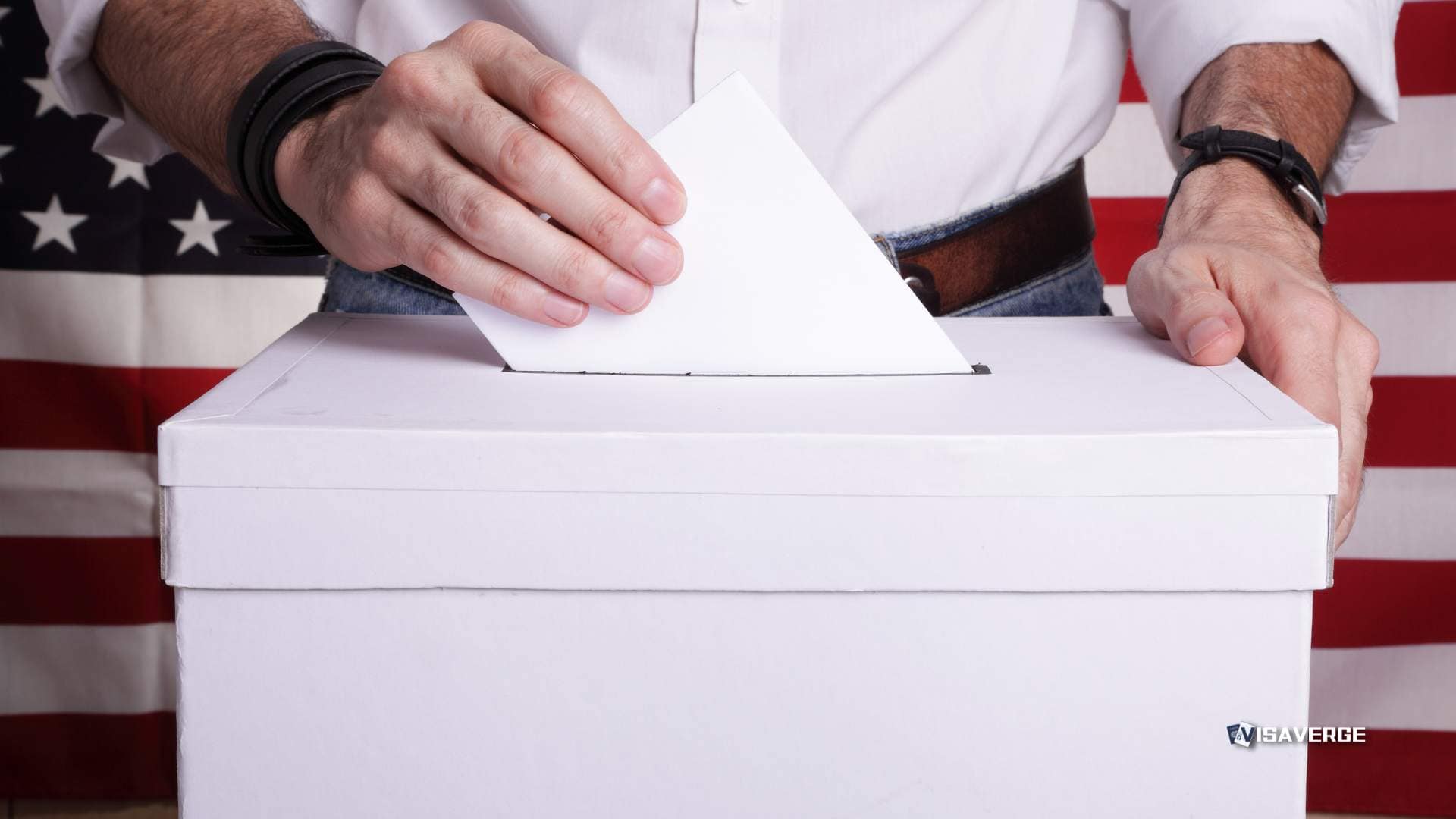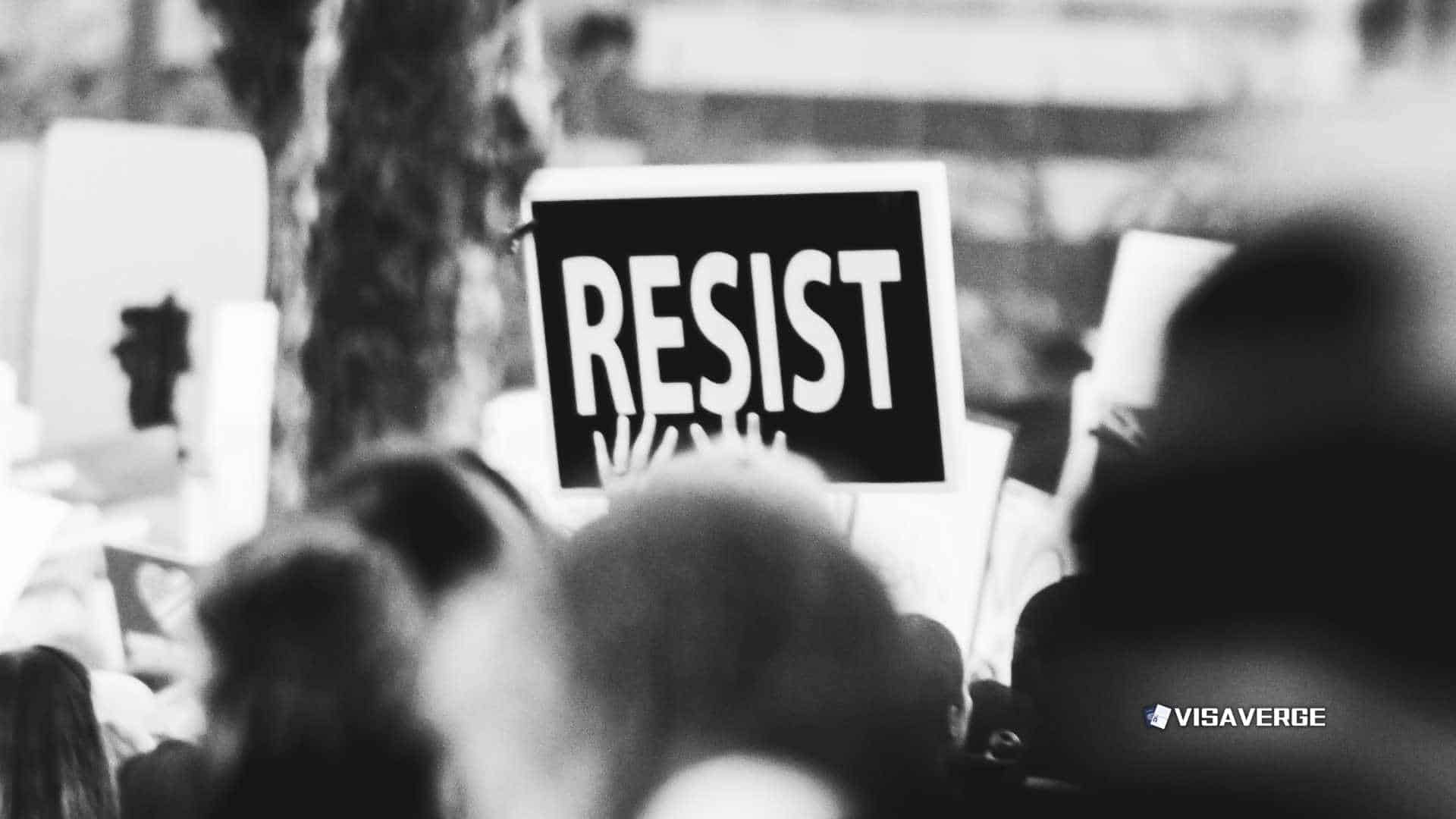Key Takeaways
• Kunal Oberoi detained by ICE for nearly two months over a 2018 marijuana conviction and prior offenses.
• Green card holders face deportation risks for old or minor criminal charges under federal immigration law.
• Trump-era enforcement increased ICE detentions and focused on zero-tolerance for all offenses, regardless of family or residency status.
Kunal Oberoi, a Michigan resident and green card holder, found his life turned upside down after a trip to India. After living in the United States 🇺🇸 for over 20 years, being married to an American citizen, and raising American-born children, Oberoi was detained by Immigration and Customs Enforcement (ICE) for almost two months because of an old marijuana charge. His experience shines a light on how immigration laws work and how enforcement responsibilities are carried out, especially in recent years.
The Story of Kunal Oberoi

Everything started for Kunal Oberoi on January 9, when he and his family landed at Detroit Metro Airport after a visit to India 🇮🇳. As the family reached immigration control, an ICE officer stopped Oberoi and began asking about a 2018 marijuana charge. Oberoi, unable to remember the details of the charge on the spot, saw his green card taken away. The officer told him to bring back the police report. When Oberoi returned weeks later, on February 3, he complied with this request. Instead of getting his green card back, he was detained right away and moved to Calhoun County Correctional Facility. He would stay there for nearly two months.
Brooke Choquette, Oberoi’s wife, described the situation as shocking and unfair. Both had voted for President Trump and believed their family was not at risk, since Oberoi had completed all the steps of legal immigration. He held a green card, had married a U.S. citizen, and had always tried to follow the rules. The ordeal contradicted their expectation of safety as legal residents.
Why Was Oberoi Detained?
Oberoi’s lawyer, Julian Daman, explained that the detention was the result of several factors combined. In addition to the 2018 marijuana conviction, Oberoi had a 2011 assault charge that came from a high school fight when he was just 18, plus a charge of destruction of property. Each incident, though years old, created problems under U.S. immigration law. Even though Oberoi had become a green card holder, he was not protected from immigration law penalties.
Here is what is important to know about U.S. immigration law:
- Any conviction for a controlled substance—such as marijuana—can make a person “inadmissible.” This means they can be denied entry into the country or lose their legal status.
- The law applies even to green card holders, who are often thought of as “permanent residents.”
- Old criminal charges do not always disappear from immigration records, even if they are minor or settled long ago.
This is why ICE had the power to detain Oberoi. Simply having a green card does not provide full protection from the consequences of criminal charges. Many immigrants and even legal residents do not realize how lasting these consequences can be.
Context: Enforcement Under President Trump
Oberoi’s lawyer said the situation would likely have played out differently under previous administrations. According to his lawyer, “the attitude of ICE after Trump took office is really what kept him there.” He described Oberoi as caught up in a “zero-tolerance” approach to immigration violations promoted by President Trump’s administration. This meant less room for exceptions or special circumstances, and a stronger focus on every possible infraction—no matter how small or how long ago it happened.
During President Trump’s term, the approach to immigration enforcement became more strict. Analysis from VisaVerge.com suggests there was a nationwide rise in both the number and the intensity of ICE actions. These included:
- Early morning raids on homes to look for immigration violations.
- Unannounced checks at workplaces.
- Extra attention at airports, sometimes targeting those with permanent residency (like green card holders).
- Mass arrests in different states across the country.
At the same time, there were reports of American citizens being questioned or even detained by immigration agents. Sometimes, these actions took place by mistake or because agents were working quickly with limited information.
Lawmakers, especially from the Democratic Party, began asking questions. Many wrote to the administration, asking for explanations and details about specific cases, including those affecting citizens. Yet, according to news reports, many did not get any answers.
Historical Background of Immigration and Green Card Law
To understand Oberoi’s experience, it’s important to know how U.S. immigration laws have changed over time. In the past, many small offenses did not automatically put someone’s immigration status in danger. But over recent decades, the laws have become tougher.
The Immigration and Nationality Act (INA) is the main law that sets the rules. In recent years, changes to the law have made it so that any drug conviction, even for small amounts of marijuana, can create serious risks. These changes came even as some states made marijuana legal for medical or recreational use. Federal law, however, still says that marijuana is a controlled substance.
Because federal immigration law does not recognize the difference between state and federal marijuana rules, a person can be punished under immigration law even if their state allows marijuana use.
Living as a Green Card Holder: What Are the Risks?
People like Kunal Oberoi are known as permanent residents, or “green card holders.” A green card lets a person live and work in the country. It is an important step for many immigrants who eventually want U.S. citizenship.
But there are clear limits:
- Green card holders are not the same as citizens. They must still obey special rules. Any run-in with the law—even for incidents that happened many years ago—can put their right to live in the country at risk.
- Under immigration law, a wide range of criminal offenses may result in detention, deportation, or denial of re-entry into the country.
- Green card holders can lose their status if they commit certain crimes. This is true even if they have lived in the United States 🇺🇸 for decades, have American family, or have not committed any other offenses.
If you are a green card holder or hope to become one, it’s critical to understand that U.S. immigration law sees criminal offenses very strictly.
Effects on People and Families
Oberoi’s detention hurt not just him but his entire family. His wife described how they felt lost and powerless, despite being sure they had done everything right. Families in similar situations have reported deep emotional stress, money problems, and fear about their future in the country.
Here’s what families can face during and after an ICE detention:
- Sudden loss of a husband, wife, or parent, making it hard to manage everyday life.
- High legal costs to defend against deportation or get someone released from detention.
- Trouble finding steady work or keeping children’s lives on track.
Some families move away or spend years fighting to keep loved ones from being deported. Even after being released, fear of being detained again can remain.
Growing Enforcement Actions and Community Responses
Oberoi’s story mirrors a national trend of aggressive actions by Immigration and Customs Enforcement. Reports during President Trump’s term showed increases in:
- Raids early in the morning in search of specific people or families.
- Arrests at workplaces, sometimes without much warning.
- Airport detentions, often focused on those returning from trips outside the United States 🇺🇸.
- Mass arrests in more than one state at a time, affecting both immigrants and green card holders.
Sometimes, U.S. citizens have also been mistakenly detained by ICE. This has led to calls for clearer guidelines and better training for agents.
Many lawmakers, especially Democrats, have asked for answers from ICE about why American citizens have been questioned or held. In many cases, their letters have gone unanswered. Advocacy groups have pushed for changes that would give detainees more rights and stop abuses. These groups often point to stories like Oberoi’s as reasons to rethink immigration enforcement rules.
How Does ICE Decide Whom to Detain?
Immigration and Customs Enforcement uses federal laws and their own rules to decide who will be stopped or detained. Any criminal record—no matter how small—may bring someone to their attention if they are not a citizen. Airport entries are a common place where agents look for records. A computer check can show charges or convictions from many years ago.
Agents have the legal right to:
- Question green card holders about their records each time they travel outside and re-enter the country.
- Review old police reports or court documents.
- Detain people on the spot for further investigation.
Being married to an American or having lived in the country for a long time does not always protect someone from detention.
What Happens After Detention?
Once detained, a green card holder like Kunal Oberoi faces several possible steps:
- Review of their criminal and immigration record to check if they broke any immigration laws.
- A hearing before an immigration judge, who can decide to keep or release the person.
- The judge may order deportation, allow the person to stay, or set bond (money paid to let the person out while waiting for the case to be decided).
Oberoi’s release after nearly two months did not mean the case was over. Threats to his immigration status—and fears of future detention—may not go away quickly. Anyone with criminal charges or convictions often needs to work closely with a lawyer who understands both immigration and criminal law.
The Aftermath: Oberoi’s Next Steps
After his release, Oberoi told reporters he felt betrayed by the system. His hopes are now simple: to forget about the experience and avoid further trouble. Yet the uncertainty remains. What happened to Oberoi could easily happen again if laws or enforcement attitudes do not change.
For green card holders and their families, understanding your rights and the risks is vital. Most experts recommend staying out of trouble with the law and seeking legal help as soon as there is any concern about criminal charges or travel outside the country.
Policy Questions and Public Debate
Stories like Oberoi’s raise questions for the country. Should a minor, years-old marijuana charge be enough to ruin someone’s life as a green card holder? Is it fair for ICE to detain people over small or old offenses, even when they have deep ties to American life?
There is ongoing debate at every level:
- Some argue strict enforcement keeps the country safer and discourages crime.
- Others say harsh policies break up families, hurt communities, and are unfair to people who have made the United States 🇺🇸 their home.
As public awareness grows, many are calling for changes to how immigration laws are enforced—especially for green card holders, who still face serious risks from even small mistakes in their past.
Advice for Green Card Holders and Immigrants
If you hold or hope to hold a green card, or if you are an immigrant with any type of legal status, it is important to:
- Learn the exact ways that criminal charges can affect your status.
- Know your rights during travel and when speaking to federal agents.
- Seek help from lawyers who specialize in both criminal and immigration law if you face legal trouble.
- Keep a careful record of all your paperwork, including police reports and court documents.
You can find official information about your rights and the immigration process on the U.S. Citizenship and Immigration Services website.
Conclusion
Kunal Oberoi’s experience highlights the serious consequences that green card holders can face under current immigration law, even for old or minor charges. His story is not unusual, especially in an environment where rules are enforced more strictly and exceptions are rare. For immigrants, families, and attorneys, understanding these realities is the first step in staying safe and planning for the future. While many hope for changes in the law, the risks remain high for now, making knowledge, caution, and good legal support more important than ever.
Learn Today
Green Card → A permit allowing immigrants to live and work permanently in the United States; also called lawful permanent residency.
Inadmissible → A legal term meaning a person can be denied entry or status in the U.S. due to specific grounds like criminal convictions.
Controlled Substance → Drugs and chemicals regulated by federal law; offenses involving these can affect immigration status despite state laws.
Immigration and Customs Enforcement (ICE) → A federal agency responsible for enforcing immigration laws, including detention and removal of non-citizens.
Zero-tolerance Policy → A strict law enforcement approach where all offenses—regardless of size or history—are acted upon without exceptions.
This Article in a Nutshell
After returning from India, Kunal Oberoi, a green card holder, was detained by ICE for almost two months over old criminal charges. His story highlights strict immigration enforcement, risks facing permanent residents, and how even minor or old offenses can jeopardize status, affecting families deeply. Awareness and legal support are crucial.
— By VisaVerge.com
Read more:
• How living in Brazil could affect your green card status
• Hong Kong Business Aviation Centre Unveils Green Fuel Revolution
• Sergey Kostenyuk, green card holder, detained by Immigration and Customs Enforcement
• Greenwood Airport Small Aircraft Crash Leaves Two Hurt
• Michigan Green Card Holder Jailed in New Immigration Sweep













